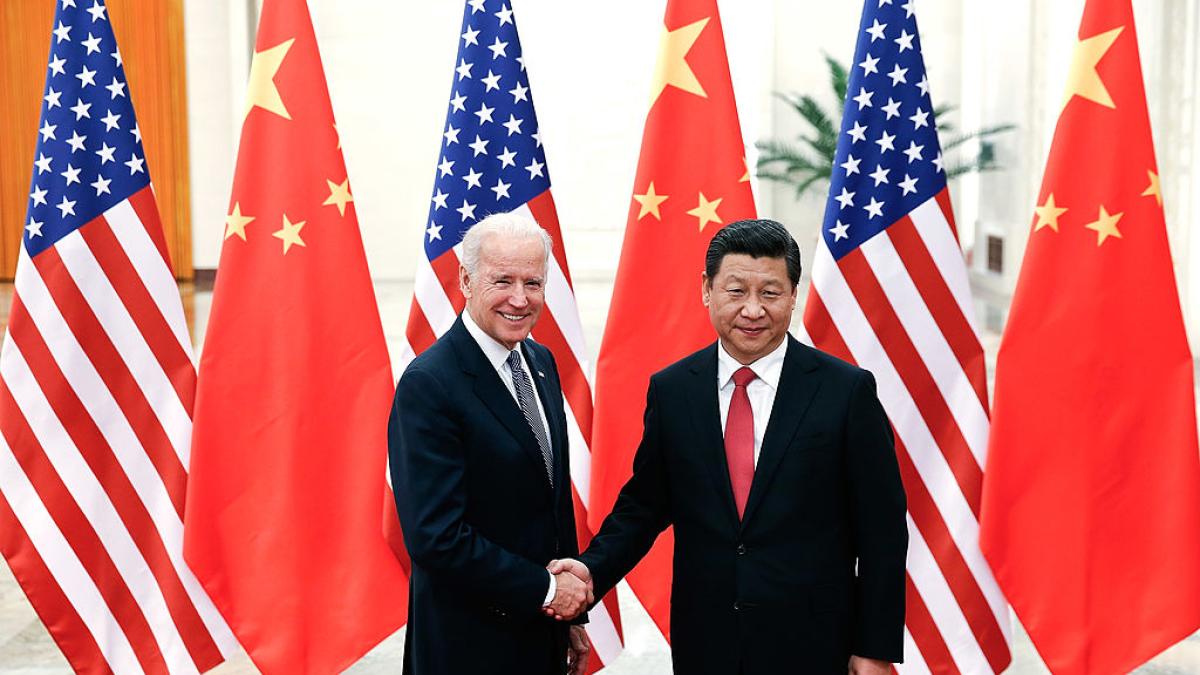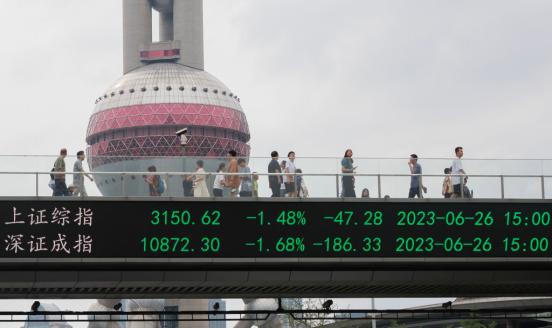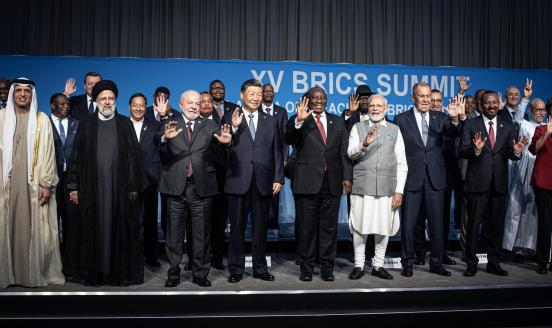Biden-Xi dialogue instrumental for a successful EU-China Summit in Beijing

The Biden-Xi summit in San Francisco on 15 and 16 November 2023 might feel underwhelming for its lack of concrete announcements, especially given the long list of pending issues which had piled up since their last encounter on the side lines of the G20 in Bali. Disappointments were equally shared by the two sides. On the Chinese side, the most pressing issue was likely the lifting of US export controls on semiconductors and, more generally, the US technological containment, but Biden did not concede. On the US side, China’s position in the war in Ukraine, and more recently Gaza, was an important red line that was not directly addressed by Xi Jinping.
Nevertheless, Biden-Xi’s gathering reached important goals, which will not only shape bilateral relations between the two hegemons, but also help the EU frame its expectations from the EU-China summit in Beijing on 5 and 6 December.
First, President Biden managed to tilt the balance of the meeting in US favour, as opposed to previous encounters. President Xi made no progress on the lifting of US export controls; in addition, he made concessions, especially on the security front. The resumption of high-level military dialogue between the US and China was accepted by President Xi, after it had been paused as a response to US House speaker, Nancy Pelosi’s visit to Taiwan in August 2022. This agreement is particularly important for Biden in the run-up to the US presidential elections in 2024, but it is obviously good news for both the two superpowers and the rest of the world.
Within this context, Biden's call for restraint in China’s use of military activity in Taiwan, while reiterating the US commitment to the one-China policy, seems to have borne fruit: Xi ruled out a military confrontation during his dinner with the US business leaders.
Both the military cooperation and Xi’s assurances over Taiwan tackle an important hurdle for EU’s officials for their own summit in Beijing, allowing them to focus on economic issues such as the EU’s rapidly growing bilateral trade deficit with China and the concerns regarding China’s industrial policy and the sheer use of subsidies for a number of key exports. Most recently, that includes electric vehicles, which prompted the EU to open an anti-subsidy investigation.
The second very positive outcome from the Biden-Xi meeting for the EU is China’s commitment to operationalise the Working Group on Enhancing Climate Action to accelerate concrete climate actions. The EU, and the world, can clearly benefit from the two largest global emitters cooperating on climate issues. Still, it is important the EU remains a key player in climate change discussions, which should be one of the objectives for the December summit in.
On a less positive front, Biden’s efforts to bring China to contribute to a resolution of the wars in Ukraine and Gaza prompted no reaction from Xi. This means that the EU leadership will still need to spend some political capital on getting Beijing to be more cooperative as regards Ukraine even if the efforts prove futile. Still, President Xi stated that China’s relation with the US is the most important one, which can also be read as Xi’s acknowledgment that Russia cannot possibly be China’s most important partner. In this context, it is for the EU delegation visiting Beijing to remind the Chinese leadership that the EU is China’s largest trading partner so that China takes this in full account when weighing its support for Russia.
All in all, while the Biden-Xi summit may not have been a game changer in terms of concrete measures announced, it has achieved two goals. First, it has mitigated immediate security tensions between the two superpowers. Second, Biden has gained some ground as President Xi has become more accommodating. The fact that Biden has not conceded on tech containment will make it easy for the EU to avoid pressure from China on lifting tech-related export controls. In addition, US-China military dialogue and a less aggressive approach to Taiwan can only help the EU leadership focus on its core competencies, which are trade and investment. More generally, President Xi’s more cooperative attitude towards the US is most likely related to the mounting domestic pressure caused by a weakening economy, which should help the EU in its negotiations at the upcoming summit.



